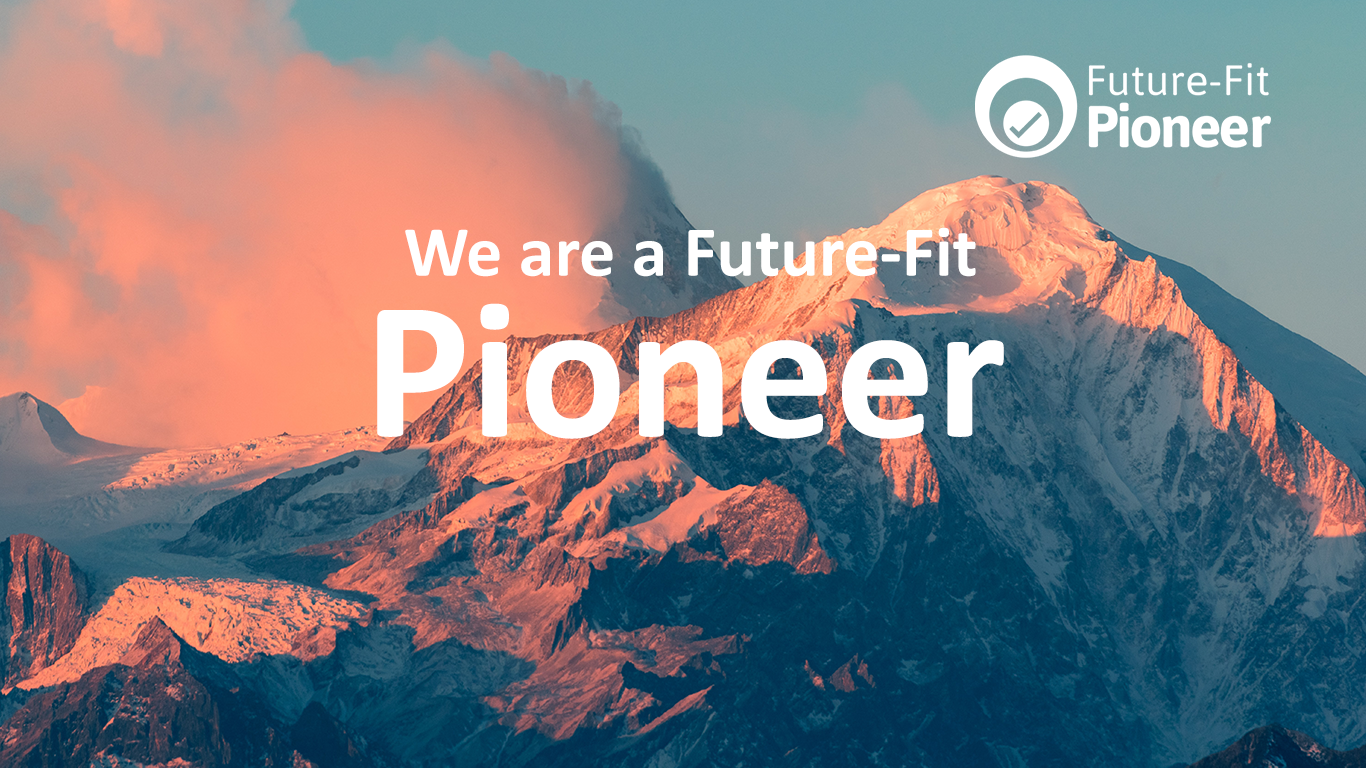As society continues to grapple with the fallout from COVID-19, many companies are doing all they can to get things ‘back to normal’. But going back, is not the answer.
If this pandemic has shown us anything, it’s that the success of every business is inextricably tied to the health of the social and environmental systems within which it operates. To avoid this level of socioeconomic disruption again – be it from other viruses, failed harvests, extreme floods and fires, or myriad other ever-more common events – we need to chart a new course.
Catherine Harris – Acre’s Head of Sustainability & CR in North America, is a proud Trustee of Future-Fit Foundation, a non-profit organization that provides a free self-assessment methodology based on leading system science, with clear targets for companies to aim for – and a step-by-step guide on how to get there.
Today we’re pleased to announce that Acre has become one of the world’s first Future-Fit Pioneers. This means we’re committing to a journey to future-fitness, and to publishing details of our progress every year. You can read our Pioneer statement here.
To deliver on this ambition will require a change in mindset – and as experts in recruitment we know this starts at the top. Tools such as the Future-Fit Benchmark play a key role in reaching those goals; but in order to increase your own company’s chances of success in the years ahead, we’ve identified four key traits we believe are fundamental amongst board members, your executives, and your leadership teams alike – as follows:
Transformational vs Incremental
The challenge… In the face of massive global challenges, true leadership is not about settling for being best among one’s peers or being slightly ‘less bad’ than last year. Rather it’s about being focused on the right destination, and constantly searching for ways to get there.
Look for… people who are willing to ask ‘what if?’ questions, who are able to challenge perceived norms and ‘the way things are done around here’ in such a way that excites and inspires – rather than threatens or offends.
Resilience vs Efficiency
The challenge… Business leaders often fixate too much on efficiency. When it comes to resource use, this makes complete sense: reducing the use of energy, water and materials saves money while easing the burden on natural resources. But efficiency drives can undermine resilience if they reduce the business’s capacity to cope with unforeseen events. Just-in-time supply chains may be cost-efficient, but they can falter in the face of even short-term interruptions. Cutting corners on safety inspections might seem like a way of saving time for workers to focus elsewhere, but if a problem goes undetected the results may be catastrophic.
Look for… people who understand that the question should always be: ‘what will make us more resilient?’ In some cases, ‘efficiency’ will be the answer, but it should never be the question.

Competitiveness vs Compliance
The challenge… It’s bad for both business and society when environmental and social issues are seen as matters of legal compliance. Regulations almost invariably lag behind what science tells us is required, so merely obeying the law on issues ranging from toxic waste to working conditions rarely equates to what’s needed.
Look for… people who see that getting ahead of environmental and social issues is about competitiveness, not compliance. Progressive leaders do what society actually needs, rather than what laws currently demand. In a world of ever-more conscious consumers, investors and prospective employees, this is about thinking beyond maintaining a license to operate, to actively winning support to succeed.
Holistic vs Selective
The challenge… Even the most well-meaning company might seek to solve one social or environmental problem while inadvertently exacerbating another. Are such trade-offs acceptable? Possibly, but how can we be sure if we are not doing enough to identify and quantify them?
Look for… people who think systemically. No decision is ever free of trade-offs, but by looking carefully at a company’s interactions with its suppliers, its customers, and the environment in a holistic manner it is possible to identify otherwise unforeseen issues. Negative trade-offs can then be anticipated and avoided, or at the very least mitigated.
What next?
Companies which nurture these ways of thinking will increase their chances of building a resilient and regenerative 21st Century business that people will want to work for, buy from, and invest in.
At Acre we stand ready to help you find and develop these traits. In the meantime, we urge you to check out what it takes to become a Future-Fit Pioneer – because we’ll only transition to an environmentally restorative, economically inclusive, and socially just future if we all play our part.


